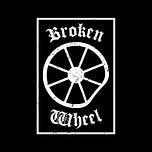- A wise man’s heart inclines him to the right,
but a fool’s heart to the left. -
This is a verse that upon first reading makes perfect sense; however, that revelation seems to fade away as our modern minds begin to explore the verse.
Our initial thoughts may go something akin to this: wise =’s good and right =’s good. Fool =’s bad and left =’s bad.
Got it. Be like the wise man and always go to the right.
Then, our modern mind begins to tangle with the meaning we have just effortlessly divined.
Well, why is it good to go towards the right? Is there something about that direction that matters? If it’s good to go to the left, wouldn’t the wise man go to the left and not the right?
Does this have to do with a cultural preference for right-handed people? Which way do people turn if given the option between right and left? Has any of this been peer reviewed?
The mind begins to spiral with all of these questions, and it felt like seconds ago we just had the answer! How can we begin to rationalize this verse in a way that makes sense?
Well, we can start by looking at how the human brain works. Perhaps modern problems require modern answers.
At a high level, the part of our brain responsible for controlling the right side of our bodies is associated with articulated or formal knowledge.
What do I mean? This is the portion of the brain that “knows” things. It’s the portion that looks at your yard and knows the grass needs to be cut and how to do it.
Well, wouldn’t we call a man who knew things wise? In a sense, our body associates this knowledge typically with its right side.
Now for our left. The portion of our brain operating this side of our body is associated with things we do not know or understand.
We use it to respond to danger or to learn a new skill. It is the hyper aware teenager sitting in the driver’s seat for the first time.
Well, wouldn’t we call someone who doesn’t know anything a fool? Our body positions this with our left side.
Now we see that implicitly we understand the direction of the wise man makes sense philosophically and bodily.
This is even reflected in Matthew when Jesus talks about the sheep and goats. The sheep (those who know Him) are at His right hand and the goats (those who do not) are at His left.
Who would you rather be? A wise man or a fool? The answer is easy, but the follow up is not so simple, though most of us already know the answer.
Would you rather be a fool or disinterested? Perhaps another way to describe the individual is lukewarm.
Right, we would rather be the fool. Being a fool and knowing you are a fool probably means you are on a search. For what? Well, whatever a fool needs!
The man who is content with what he knows? He stays where he is. Isn’t it funny that the people Jesus calls lukewarm are “Christians?”
Here is a great truth. The fool and the wise man agree on one thing despite being at seemingly opposite ends of the moral divide.
They both know that they know nothing.














Share this post